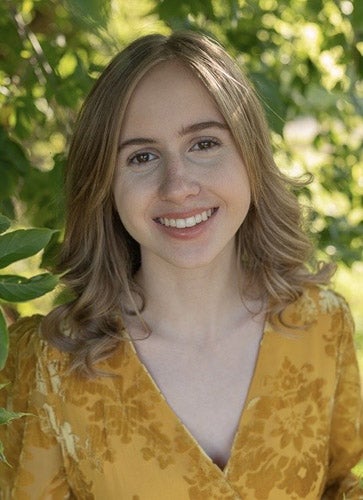Kacie Sieradski
Pronouns: they/he/she
Research Mentor(s): David Sandberg
Research Mentor School/College/Department: Pediatrics / Medicine
Program:
Authors: Kacie Sieradski, Erica Weidler, Melissa Gardner
Session: Session 2: 10:00 am – 10:50 am
Poster: 38
Abstract
Background: Differences of Sex Development (DSD) or Intersex conditions are a category of medical conditions that affect genital appearance and/or reproductive function. Individuals with DSD experience a number of concerns as a result of their condition, including surgery, sexual functioning, and social stigma. Ideally, there should be high correspondence between patient and family needs, healthcare services provided, and research used by patients, families, and healthcare providers to help make informed clinical management decisions. However, in DSD, this is not always the case. There have been previous studies on DSD and related conditions, but many of these studies did not lead to updated care or negated the social implications of living with DSD. Objectives: The aim of this project is to assess needs (e.g., medical, educational, social…) and research priorities among those with a DSD condition, parents of children with a DSD condition, and advocacy leaders. Methods: A survey of patient and parent needs and research priorities was developed and revised through an iterative process of seeking and incorporating feedback from DSD patient and family support and advocacy organization (SAO) leadership. After revisions were completed, links to the web-based survey were provided to each organization’s leadership for distribution to their membership. This project is ongoing; data analyses include responses from SAOs who have distributed the survey to their membership and focus on two survey items related to (1) challenges participants or their children experience related to their condition and (2) research priorities. Results: Of seven identified SAOs, 3 completed all revisions and distributed surveys to their membership, 2 are in process of providing final feedback & approval for distribution, 1 is in the early stages with initial contacts being made, and 1 is not yet contacted. A total of 216 participants, including 151 with MRKH, 37 parents, 1 other from SAO-1; 6 individuals with CAH and 13 parents of individuals with CAH from SAO-2; and 6 adults with a DSD from SAO-3 have completed the survey. Among individuals with MRKH from SAO-1 “fertility and sexual function” (n=132, 87%) was the most frequently reported challenge and “mental health and psychosocial support” was the most desired research focus. As reported by parents of those with MRKH, “mental health concerns” (n= 26, 70%) was most frequently reported on behalf of their children and “medical care and treatment options” research was prioritized. For those from SAO-2, “access to appropriate medical care” was the most frequently reported challenge by those with CAH (n=4, 67%) and by parents of those with CAH (n=8, 62%); “medical care and treatment options” research was prioritized by both. Among adults with DSD (varied diagnoses) from SAO-3, “fertility and sexual function” (n=6, 100%) was the most frequently reported challenge and “medical care and treatment options” and “support for decision-making” tied as their most desired research focus. Conclusions: Although there was some variation across organizations and between parents and those with various conditions, responses emphasizing mental and physical health, decision-making, support, and relationships were common. Overall, this research will benefit individuals, especially young people, with DSD by providing greater awareness about DSD and using our results to improve our current standards of care. We anticipate our conclusions will help frame future research and guide resource development efforts.




